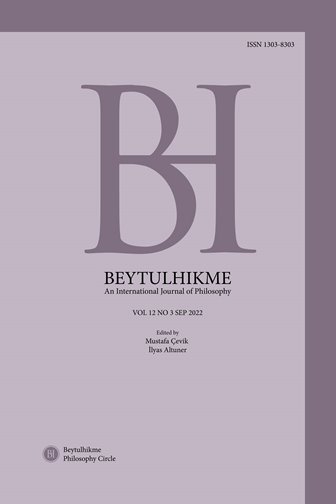Author :
Abstract
Şehirler, ormanlar, denizler ve gökyüzünün oluşturduğu insanı kuşatan varlık dünyasına çevre denilmektedir. Bu mekanlar insan gibi tüm canlıların yaşam alanıdır. İnsan bu alanların bir parçası olmasına rağmen zamanla buralara zarar vermeye başladı. Teknik ilerlemeye paralel olarak ağaçlar kesildi, toprak ve sular kirlendi ve gökyüzü zehirlendi. Çevre sorunları insanın ve tüm canlı türlerinin geleceğini yok ediyor. Bu sebeple düşünürler yaşanan bu sorunların üstesinden gelmek için çözüm üretmeye başladılar. Bu amaçla yeni çevre kuramları ve çevre ahlakı ilkeleri geliştirdiler. Bu süreçte şüphesiz insanlığa yol gösteren ve evrensellik iddiasında bulunan İslam inancının da yaşanan sorunlara yönelik çözüm önerileri bulunmaktadır. Gerek Kuran-ı Kerim’de ve gerekse Hz. Muhammed’in yaşamında çevre önemli bir yere sahipti. Ancak dönemleri itibariyle yıkıcı çevre felaketleri olmadığı için İslam âlimleri konuya yönelik sistematik bir söylemde bulunmadılar. Ancak bugün Müslümanların çevreye nasıl bakmaları gerektiğine dair sistematik bir çevre kuramı oluşturma zorunluluğu doğmuştur. Çünkü birçok akademik sirkülerde İslam dininin çevre ilkeleri sıklıkla sorulmaktadır. İşte biz bu makalede İslam çevre ahlakına dair bir yöntem ve kuram geliştirme denemesinde bulunacağız. İddiamız görece olup bu konuda çalışma yapmak isteyen bilim insanlarına perspektif sunma amacı taşımaktadır.
Keywords
Abstract
The world of being that surrounds man, formed by cities, forests, seas, and the sky is called the environment. These places are the habitat of all living things like humans. Although the man was a part of these areas, he began to damage these areas over time. In parallel with the technical progress, trees were cut down, soil and water became polluted, and the sky began to be poisoned. Environmental problems began to destroy the future of man and all living species. For this reason, thinkers have started to produce solutions to overcome these problems. For this purpose, they developed new environmental theories and environmental moral principles. In this process, there is no doubt that the Islamic faith, which guides humanity and claims universality, also has solutions to the problems experienced. The environment had an important place in the Qur'an and the life of the Prophet Muhammad. However, since there were no destructive environmental disasters in their periods, Islamic scholars did not make a systematic discourse on the subject. Today, however, it is necessary to formulate a systematic environmental theory of how Muslims should view the environment. Because in many academic circulars, the environmental principles of the religion of Islam are frequently asked. In this article, we will try to develop a method and theory on Islamic environmental ethics. Our claim is relative and aims to present a perspective to scientists who want to work on this subject.
Keywords
- Arslan, E. (2009). Fetvalarda Çevre Kirliliği. Din ve Hayat, TDV-İstanbul Müftü- lüğü Dergisi, 4.
- Baykal, H., & Baykal, T. (2008). Küreselleşen Dünya’da Çevre Sorunları. Mustafa Kemal Üniversitesi Sosyal Bilimler Enstitüsü Dergisi, 5(9), 1-17.
- Bayrakdar, M. (1992). İslam ve Ekoloji. Diyanet İşleri Başkanlığı Yayınları.
- Deylemî. (1986). El-Firdevs bi-Me’sûri’l-Hitâb: C. II.
- Dutton, Y. (1998). Islam and the Environment: A Framework for Enquiry. İçinde H. Abdel Haleem (Ed.), Islam And Tbe Environment. Ta-Ha Publishers Ltd.
- Foltz, R. C. (2005). Enviromentalism in The Muslim World. Nova Science Pub.
- Haider, S. G. (1984). Habitat and Values in Islam: A Conceptual formulation of an Islamic city. İçinde Z. Serdar (Ed.), The Touch of Midas: Science, values and environment in Islam and the West. Centre for Studies on Science.
- Hamidullah, M. (1981). Hz. Peygamberin Savaşları ve Savaş Meydanları (S. Tuğ, Çev.). Yağmur yayınevi.
- Hobson, İ., & Abdel Haleem, H. (1998). Islam’s Guiding Principles for a Solu- tion to Environmental Problems. İçinde Islam And The Environment. Ta-Ha Publishers Ltd.
- Macit, Y. (2005). Savaş Kuralları Açısından Hz. Peygamber’in Sünnetinde Doğal ve Fizikî Yapının Masuniyeti. Dinbilimleri Akademik Araştırma Dergisi, 5(4), 95-110.
- McKibben, B. (2006). Yeter! Genetik Mühendisliği ve İnsan Doğasının Sonu (F. Çolak, Çev.). Pınar yayınları.
- Nargül, V. (2024). İslam Hukukunda Çevrenin Savaş Sırasında Korunması. İslam Hukuku Araştırmaları Dergisi, 23, 223-249.
- Omar Naseef, A. (1998). The Muslim Declaration on Nature. İçinde H. Abdel Haleem (Ed.), Islam And The Environment. Ta-Ha Publishers Ltd.
- Özalp, H. (2022). Tanrı ve Tasarım. Eski Yeni.
- Razi, F. (2002). Tefsir-i Kebir Mefatihu’l Gayb (S. Yıldırım, L. Cebeci, S. Kılıç, & S. Doğru, Çev.; 2. bs, C. 5). Huzur yayınevi.
- Yaran, C. S. (2010). Ahlak ve Etik. Rağbet.
- Yaran, C. S. (2012). İslam Ahlak Felsefesine Giriş. DEM yayınları.
- Yüksel, Y. (2020). Kur’an’da Fesât Kavramı ve Müfsitlerin Nitelikleri. Mevzu-Sos- yal Bilimler Dergisi, 3, 45-80. Öz: Şehirler, ormanlar, denizler ve gökyüzünün oluşturduğu insanı kuşatan varlık dünyasına çevre denilmektedir. Bu mekanlar insan gibi tüm canlıların yaşam alanıdır. İnsan bu alanların bir parçası olmasına rağmen zamanla buralara zarar vermeye başladı. Teknik ilerlemeye paralel olarak ağaçlar kesildi, toprak ve sular kirlendi ve gökyüzü zehirlendi. Çevre sorunları insanın ve tüm canlı türlerinin geleceğini yok ediyor. Bu sebeple düşünürler yaşanan bu sorunların üstesinden gelmek için çözüm üretmeye başladılar. Bu amaçla yeni çevre kuramları ve çevre ahlakı ilkeleri geliştirdiler. Bu süreçte şüphesiz insanlığa yol gösteren ve evrensellik iddiasında bulunan İslam inancının da yaşanan sorunlara yönelik çözüm önerileri bulunmaktadır. Gerek Kuran-ı Kerim’de ve gerekse Hz. Muhammed’in yaşamında çevre önemli bir yere sahipti. Ancak dönemleri itibariyle yıkıcı çevre felaketleri olmadığı için İslam âlimleri konuya yönelik sistematik bir söylemde bulunmadılar. Ancak bugün Müslümanların çevreye nasıl bakmaları gerektiğine dair sistematik bir çevre kuramı oluşturma zorunluluğu doğmuştur. Çünkü birçok akademik sirkülerde İslam dininin çevre ilkeleri sıklıkla sorulmaktadır. İşte biz bu makalede İslam çevre ahlakına dair bir yöntem ve kuram geliştirme dene- mesinde bulunacağız. İddiamız görece olup bu konuda çalışma yapmak isteyen bilim insanlarına perspektif sunma amacı taşımaktadır. Anahtar Kelimeler: Çevre, çevre kirliliği, çevre ahlakı, İslam çevre ahlakı kuramı, yöntem.





